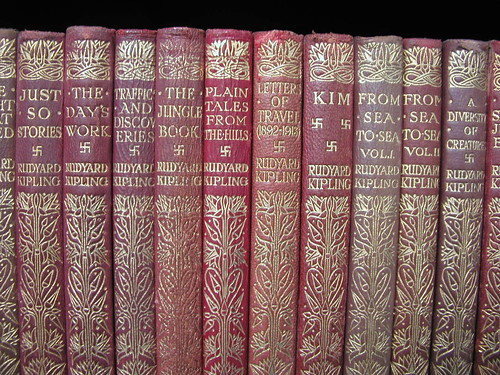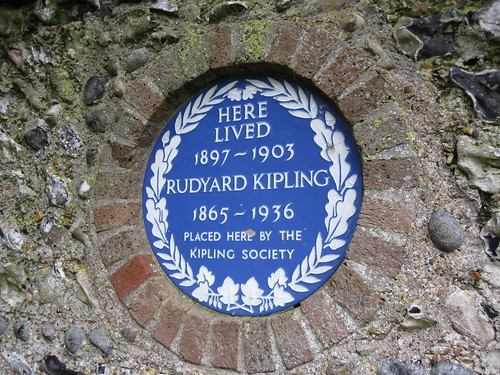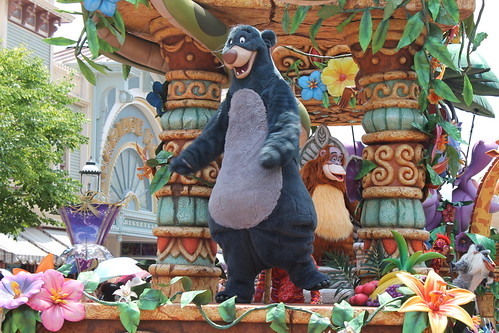Why we still love Rudyard Kipling
Rudyard Kipling was a prolific writer of poems, short stories and novels who was highly revered in his lifetime but attracts contradictory responses today. This guide to his life and work reveals why Kipling’s best work continues to endure and find new readers today.

Rudyard Kipling’s tales continue to excite, inspire and provoke reactions todays. His Jungle Book characters have permeated our culture, Kim is still held up as a masterpiece of comic spy fiction and many of us, without even realising it, could quote lines from poems such as If- , Gunga Din or The White Man’s Burden .
Despite charges of flag- waving imperialism Kipling has found lovers of his works across the political spectrum: Indian novelist and journalist Khushwant Singh has described If- as containing "the essence of the message of The Gita in English" whilst India’s first prime minister Jawaharlal Nehru always maintained that Kim was his favourite book in any language. Prominent left-wing musician Billy Bragg has claimed that Kipling displays an inclusive sense of being English and lists three Kipling poems amongst his top ten.
Kipling was even more highly revered in his day. Henry James described him as a “complete man of genius” and he was the first writer in English to receive the Nobel Prize in Literature, which. To this day, he remains the youngest-ever recipient. There are believed to have been several attempts to offer Kipling the post of British Poet Laureate and to offer him a knighthood but Kipling, for his own reasons, declined all approaches.
What is it that continues to excite interest in Kipling? What made him write so prolifically and well? And what books or poems should you start with if you wish to explore his work?
Kipling’s background
Despite his associations with the British Empire’s India (he was born in Bombay in 1865) Kipling was a great traveller with an ear for accent and dialect matched, perhaps, only by Dickens. Kipling received a boarding school UK education in Devon, lived in Lahore (now in Pakistan), and travelled to China, Japan, America and South Africa before settling in England’s green and pleasant Sussex countryside.
Kipling’s ear for dialogue, his narrative pace and his deft characterisation have helped to make him an enduring writer and he learnt his craft as a journalist. He was the first ever poet to include Cockney parlance in serious poetry and his acute political sense enabled him to satirise situations and characters with the sort of light touch most commonly associated with a sketch artist.

Kipling’s Great Works
If you want to explore for yourself the continuing appeal of Kipling, here are some suggested places to start.
· Kim
This picaresque novel by Rudyard Kipling published in 1901 takes the so-called Great Game of political posturing between Russia and Britain in Central Asia as its backdrop. You will find detailed portraits of the people, culture, and varied religions of India wrapped neatly up in the tale of an innocent who becomes unwittingly involved in the Great Game itself.
· The Man Who Would Be King
Partly about a comic tale of the unlikely rise and fall two rogues in India, and partly an elaborate historical argument about Alexanders links to the practice and symbols of Freemasonry, this tale has enough twists and turns to make it a true comic masterpiece.
· The Jungle Book
Delightful as it is the animated film still fails to match up to Kipling’s own two Jungle Books. An epic imagination, loveable characters and wonderful telling make these classics for children and adults alike.

Resource box
The Kipling Society resource files
Excellent range of information and pictures to explore from the official Kipling Society.
The Jungle Book on Project Gutenberg
Find a free out-of-copyright eBook of the Jungle Book and start reading now.
Batemans – Kipling’s home in Sussex from 1902-1936
Discover how to visit Batemans – now owned by the National Trust.

